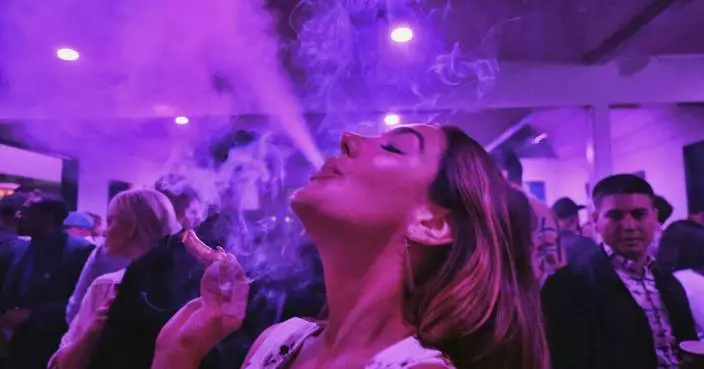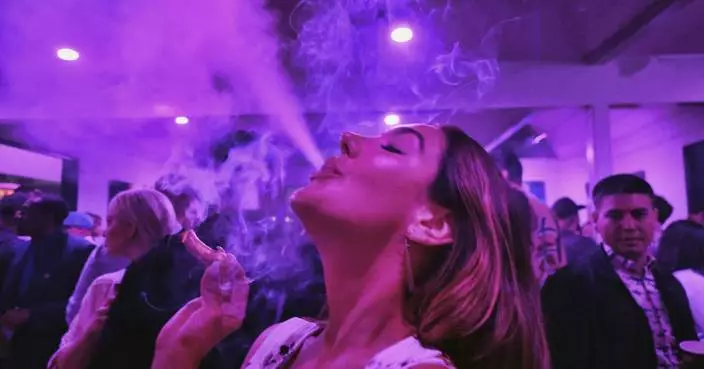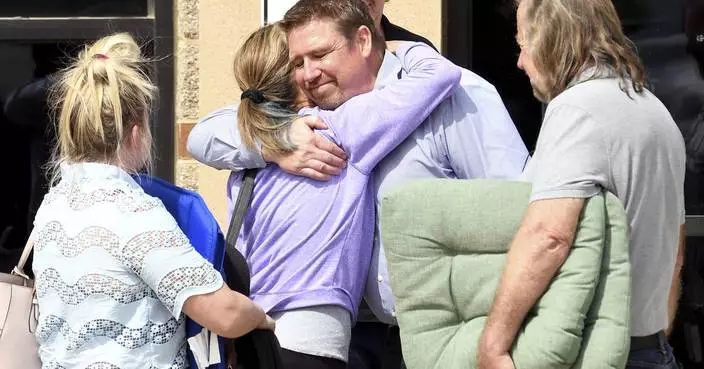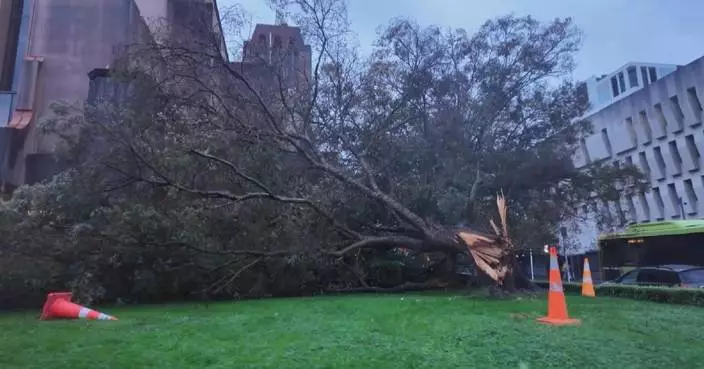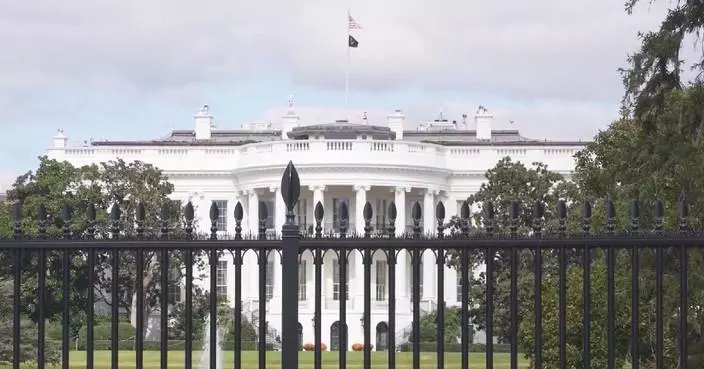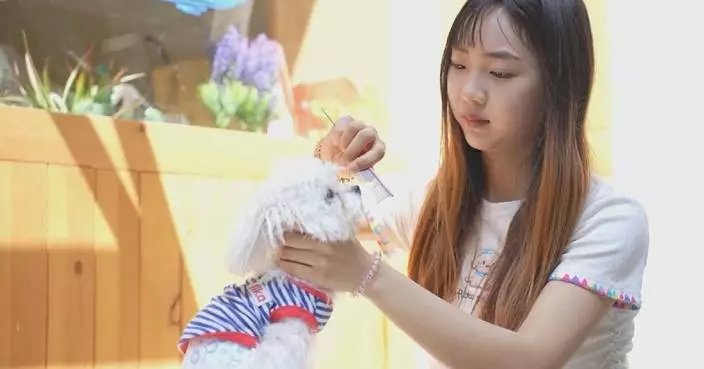Emily started taking CBD oil capsules, a legal part of the cannabis plant, to help with her skin.
Dubbed “pizza face” and “a spotty freak” during her eight-year battle with virulent acne, an attractive young woman revealed how she finally has a clear complexion – thanks to cannabis.
Click to Gallery
Emily now with partner Connor (Collect/PA Real Life)
Emily had bad reactions to everything she tried for her skin, pictured here (Collect/PA Real Life)
Emily now and partner Connor (Collect/PA Real Life)
Emily's cannabis capsules (Collect/PA Real Life)
Emily's acne made her feel down (Collect/PA Real Life)
Emily was cruelly called pizza face because of her skin problems (Collect/PA Real Life)
Emily now and partner Connor (Collect/PA Real Life)
So self-conscious she did not want to leave the house, after years of trying everything from antibiotics to homemade face washes, Emily McClarron, 25, started taking CBD oil capsules, a legal part of the cannabis plant.
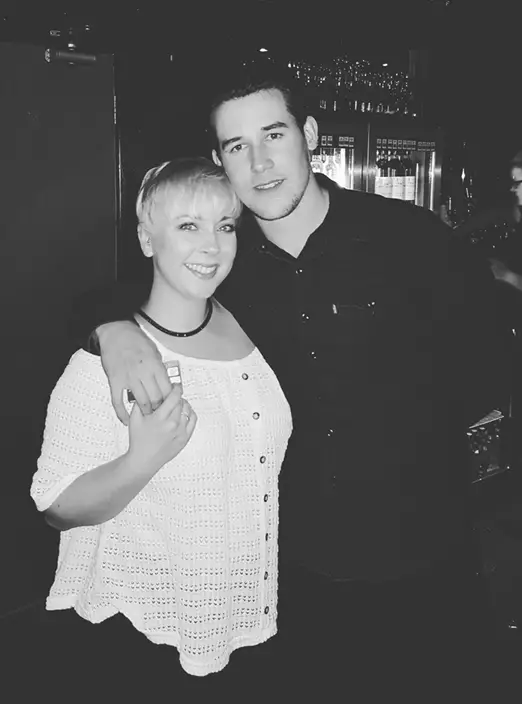
Emily now with partner Connor (Collect/PA Real Life)
Stock controller Emily, of Rayleigh, Essex, tried the controversial treatment after declining the powerful anti-acne drug Roaccutane, which can cause depression, saying: “The cannabis capsules make me feel more relaxed and stress was a huge trigger for my skin-breakouts.”
She continued: “I read online that cannabis oil can help relieve inflammation, provide pain relief and reduce anxiety. There may not be many conclusive scientific studies on it, but it’s certainly worked for me.”
When persistent, angry spots first erupted on her cheeks and chin at 17, Emily began a tireless trawl through every skin treatment she could find.
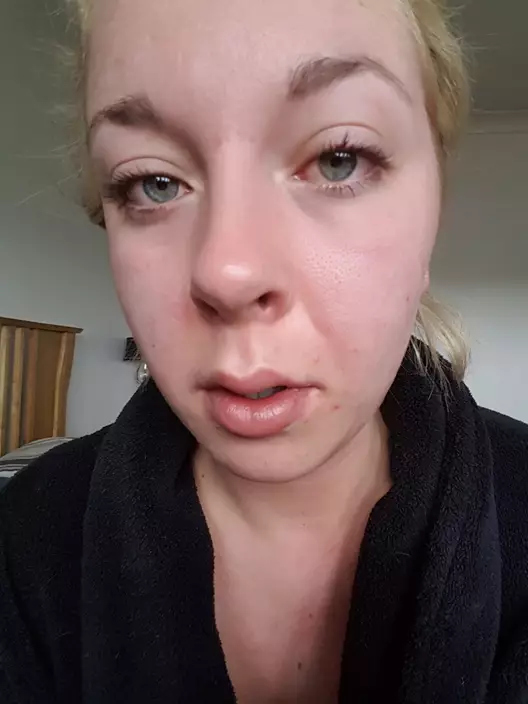
Emily had bad reactions to everything she tried for her skin, pictured here (Collect/PA Real Life)
“It was awful,” she said. “I tried everything, but nothing seemed to help.
“I’d try and cover up the spots with make-up and just felt so down and depressed about how I looked. All I would see when I looked in the mirror was the acne.”
Back and forth to her doctor over the years, Emily, who has been dating plasterer Connor Lepine, 27, for nine years, was prescribed everything from antibiotics to gels, in a bid reduce her livid red skin, but nothing worked.
“I had bad reactions to everything,” she said. “I had a rash all over my body and my face swelled up like I had been stung by a wasp.
“With one gel I even felt like the top layer of skin had burnt off. I begged my doctor to refer me to a dermatologist, hoping they would be able to suggest something else.”
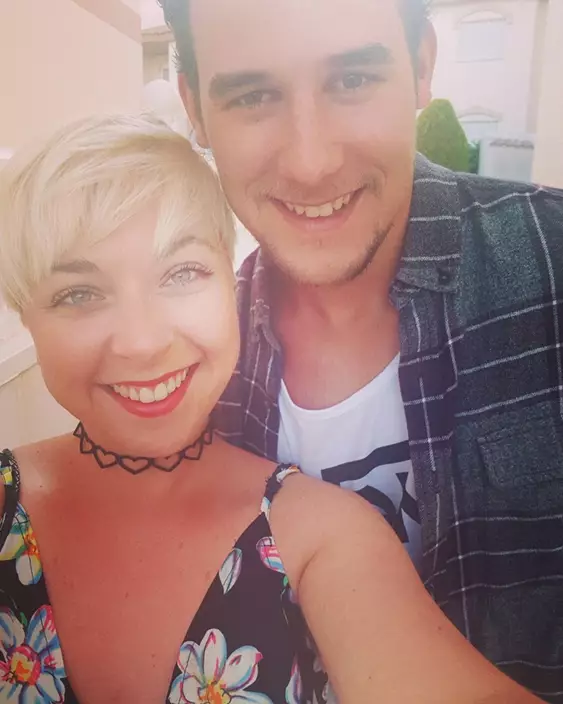
Emily now and partner Connor (Collect/PA Real Life)
She added: “I was at my wits’ end. My skin was so bad, strangers asked me ‘What’s wrong with your skin?’, called me a ‘spotty freak’ and ‘pizza face’ which hurt a lot.”
Finally referred to the specialist earlier this year, after eight years of suffering, Emily was offered the powerful acne drug Roaccutane.
“I knew I didn’t want the drug as, even though it works for a lot of people, it does come with a lot of bad side-effect warnings, including depression and mood changes,” she explained.
She added: “I was already really down, because of my skin and didn’t want to risk feeling any worse.”
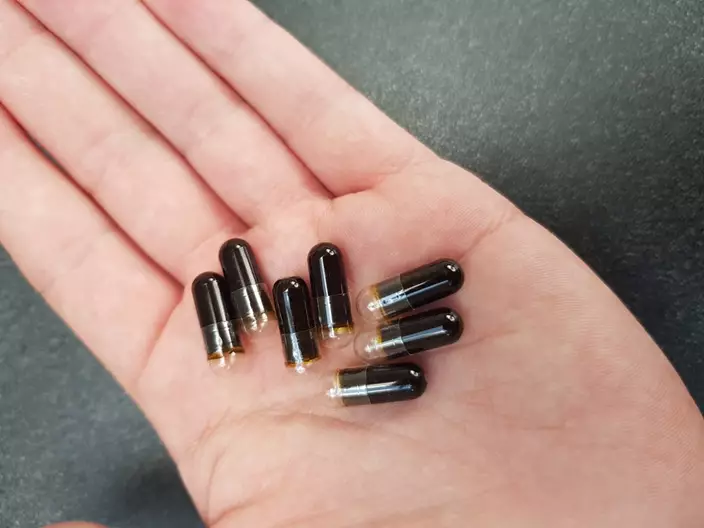
Emily's cannabis capsules (Collect/PA Real Life)
Both her mental health and her social life suffered, because of her acne.
Emily continued: “My fella would ask me to go out to the pub, or for dinner, but I wouldn’t want to leave the house.
“My anxiety got worse, as I was so insecure about how I looked. Connor would tell me I looked gorgeous, but I didn’t believe it.”
Feeling helpless, Emily turned to her kitchen cupboard and started making her own skin care products.
“I didn’t want to put a really strong drug into my body, but didn’t know what else to do,” she said.
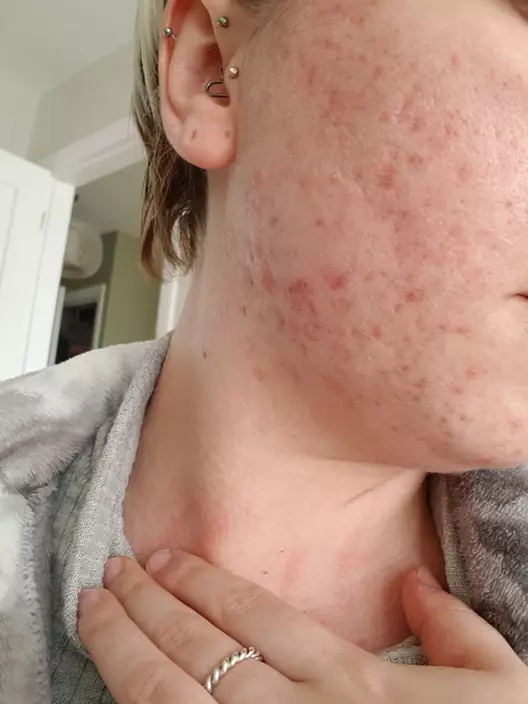
Emily's acne made her feel down (Collect/PA Real Life)
“So, I started researching how to treat acne online and read that honey and turmeric can help. I was honestly at the point where I would have tried anything.”
Mixing the two ingredients together, Emily started using her concoction as a face mask, then making a face wash from honey, jojoba oil, evening primrose oil and lavender oil.
Noticing a change in her skin, but not a transformation, three months ago Emily discovered cannabis capsules and began taking one 10mg tablet every day.
Containing CBD oil, which does not make people “high” and is legal, Emily started to notice her stress levels – a trigger for her acne – plummet.
She continued: “Since I started taking the capsules, combined with homemade skin products, people have told me how amazing my skin looks.
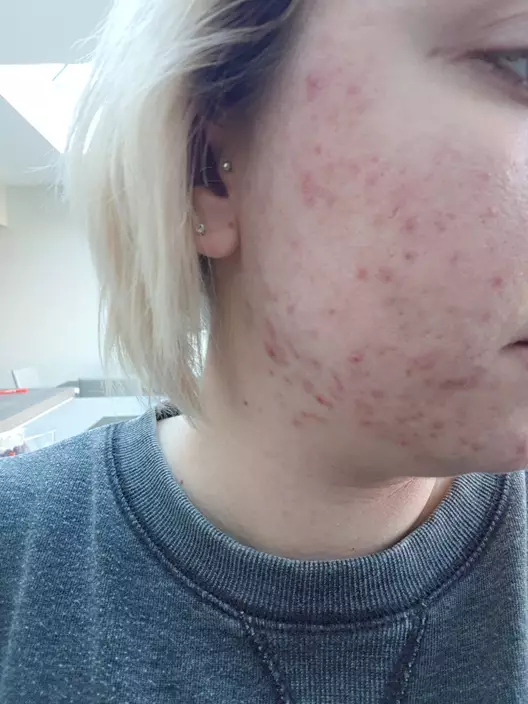
Emily was cruelly called pizza face because of her skin problems (Collect/PA Real Life)
“When I tell them it’s down to cannabis capsules, they do ask if it’s legal, which of course it is. Before this, if I was feeling anxious, I’d have a really bad break-out if, but the tablets have made me feel much calmer, so I am not getting the terrible acne I was.
“The cannabis hasn’t cured me, but it has helped take control of my severe acne once and for all.”
Now Emily is even looking into selling her homemade skin products to help others, and already sells cannabis oil capsules across the UK.
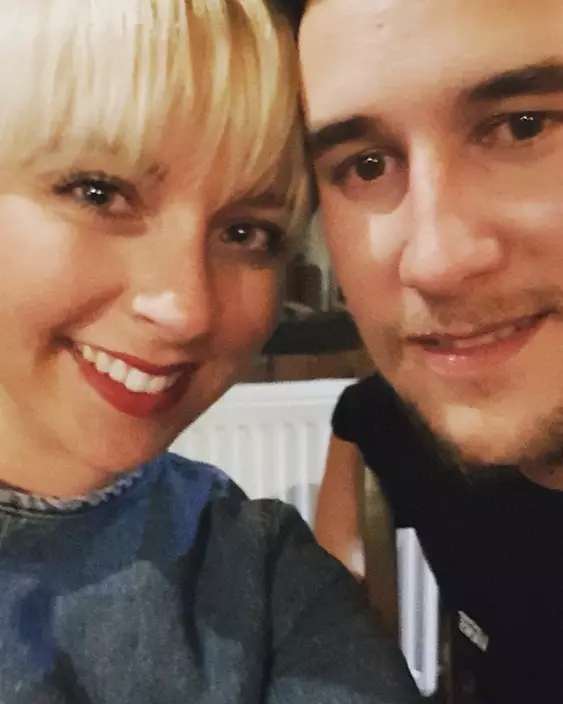
Emily now and partner Connor (Collect/PA Real Life)
She said: “Now my skin is 99 per cent better. I still have some scarring, but now I have been able to have treatment to help them, and even finally feel confident to go out without make-up on, which I never did before.
“I have got to the point where I don’t care what people think, I feel so happy with the way I am.”
NEW YORK (AP) — A Brooklyn woman said she feared for her life as she was chased, kicked, spit at and pelted with objects by a mob of Orthodox Jewish men who mistook her as a participant in a protest against Israel’s far-right security minister.
The assault, recorded by a bystander, unfolded Thursday near the global headquarters of the Chabad-Lubavitch movement in Crown Heights, where an appearance by Itamar Ben-Gvir set off clashes between pro-Palestinian activists and members of the neighborhood’s large Orthodox Jewish community.
The woman, a neighborhood resident in her 30s, told The Associated Press she learned of the protest after hearing police helicopters over her apartment. She walked over to investigate around 10:30 p.m. but by then the protest had mostly dispersed. Not wanting to be filmed, she covered her face with a scarf.
“As soon as I pulled up my scarf, a group of 100 men came over immediately and encircled me,” said the woman, who spoke to the AP on the condition of anonymity because she feared for her safety.
“They were shouting at me, threatening to rape me, chanting ‘death to Arabs.’ I thought the police would protect me from the mob, but they did nothing to intervene," she said.
As the chants grew in intensity, a lone police officer tried to escort her to safety. They were followed for blocks by hundreds of men and boys jeering in Hebrew and English.
Video shows two of the men kicking her in the back, another hurling a traffic cone into her head and a fourth pushing a trash can into her.
“This is America,” one of the men can be heard saying. “We got Israel. We got an Army now.”
At one point, she and the police officer were nearly cornered against a building, the video shows.
“I felt sheer terror,” the woman recalled. “I realized at that point that I couldn’t lead this mob of men to my home. I had nowhere to go. I didn’t know what to do. I was just terrified.”
After several blocks, the officer hustled the woman into a police vehicle, prompting one man to yell, “Get her!” The crowd erupted in cheers as she was driven away.
The woman, a lifelong New Yorker, said she was left with bruises and mentally shaken by the episode, which she said police should investigate as an act of hate.
“I’m afraid to move around the neighborhood where I’ve lived for a decade,” she told the AP. “It doesn’t seem like anyone in any position of power really cares.”
A police spokesperson said one person was arrested and five others were issued summons following the demonstration, but did not say whether anyone involved in assaulting the woman was charged.
Mayor Eric Adams said Sunday that police were investigating “a series of incidents stemming from clashing protests on Thursday that began when a group of anti-Israel protesters surrounded the Chabad Lubavitch World Headquarters — a Jewish house of worship — in Brooklyn.”
He said police had spoken to a different woman on the pro-Palestinian side of the protest who suffered injuries after she was harassed by counterprotesters. Photos shared online showed that woman with blood streaming down her face.
“Let me be clear: None of this is acceptable, in fact, it is despicable,” Adams added. “New York City will always be a place where people can peacefully protest, but we will not tolerate violence, trespassing, menacing, or threatening.”
The protest was one of several in recent days against Ben-Gvir, an ultranationalist settler leader who is embarking on his first U.S. state visit since joining Prime Minister Benjamin Netanyahu’s cabinet three years ago.
Previously convicted in Israel of racist incitement and support for a terrorist group, he has called on his supporters to confront Palestinians and assert “Jewish Power."
The protest against Ben-Gvir’s Brooklyn appearance generated condemnations from some Jewish groups, who accused participants of targeting a religious site.
The neighborhood around the Chabad headquarters also was the site of the 1991 Crown Heights riot, in which Black residents outraged by a boy's death in a crash involving a rabbi's motorcade attacked Jews, homes and businesses for three days.
A Chabad-Lubavitch spokesman, Rabbi Motti Seligson, denounced both the anti-Ben-Gvir protesters and the mob that chased the woman.
“The violent provocateurs who called for the genocide of Jews in support of terrorists and terrorism — outside a synagogue, in a Jewish neighborhood, where some of the worst antisemitic violence in American history was perpetrated, and where many residents share deep bonds with the victims of Oct. 7 — did so in order to intimidate, provoke, and instill fear,” Seligson said.
“We condemn the crude language and violence of the small breakaway group of young people; such actions are entirely unacceptable and wholly antithetical to the Torah’s values. The fact that a possibly uninvolved bystander got pulled into the melee further underscores the point,” he said.
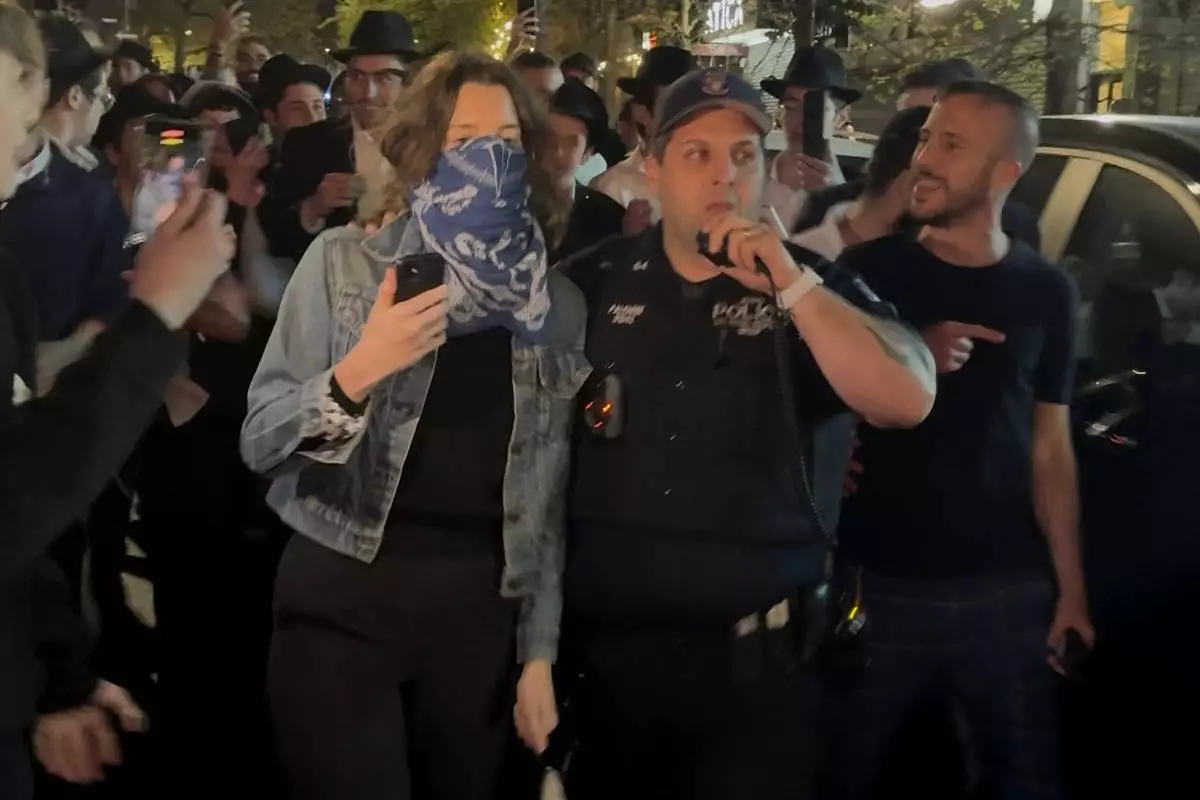
This image taken from video shows a woman and a police officer as they are pursued by a mob of Orthodox Jewish men in the Crown Heights section of Brooklyn, N.Y., on Thursday, April 24, 2025. (AP Photo)

This image taken from video shows a woman and a police officer as they are pursued by a crowd of men in the Crown Heights section of Brooklyn, N.Y., on Thursday, April 24, 2025. (AP Photo)

This image taken from video shows a woman and a police officer as they are pursued by a crowd of men in the Crown Heights section of Brooklyn, N.Y., on Thursday, April 24, 2025. (AP Photo)
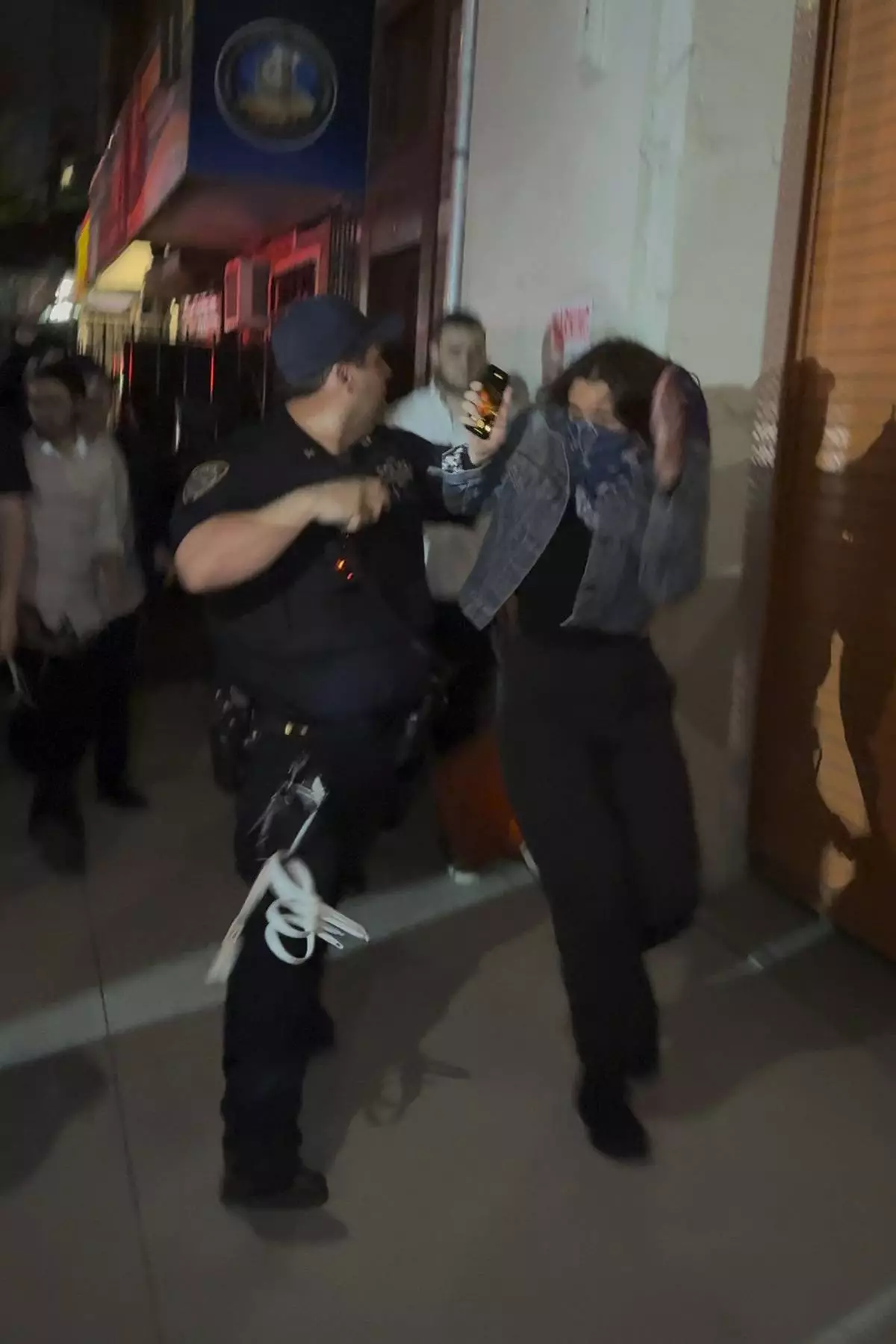
This image taken from video shows a woman and a police officer as they are pursued by a crowd of men in the Crown Heights section of Brooklyn, N.Y., on Thursday, April 24, 2025. (AP Photo)
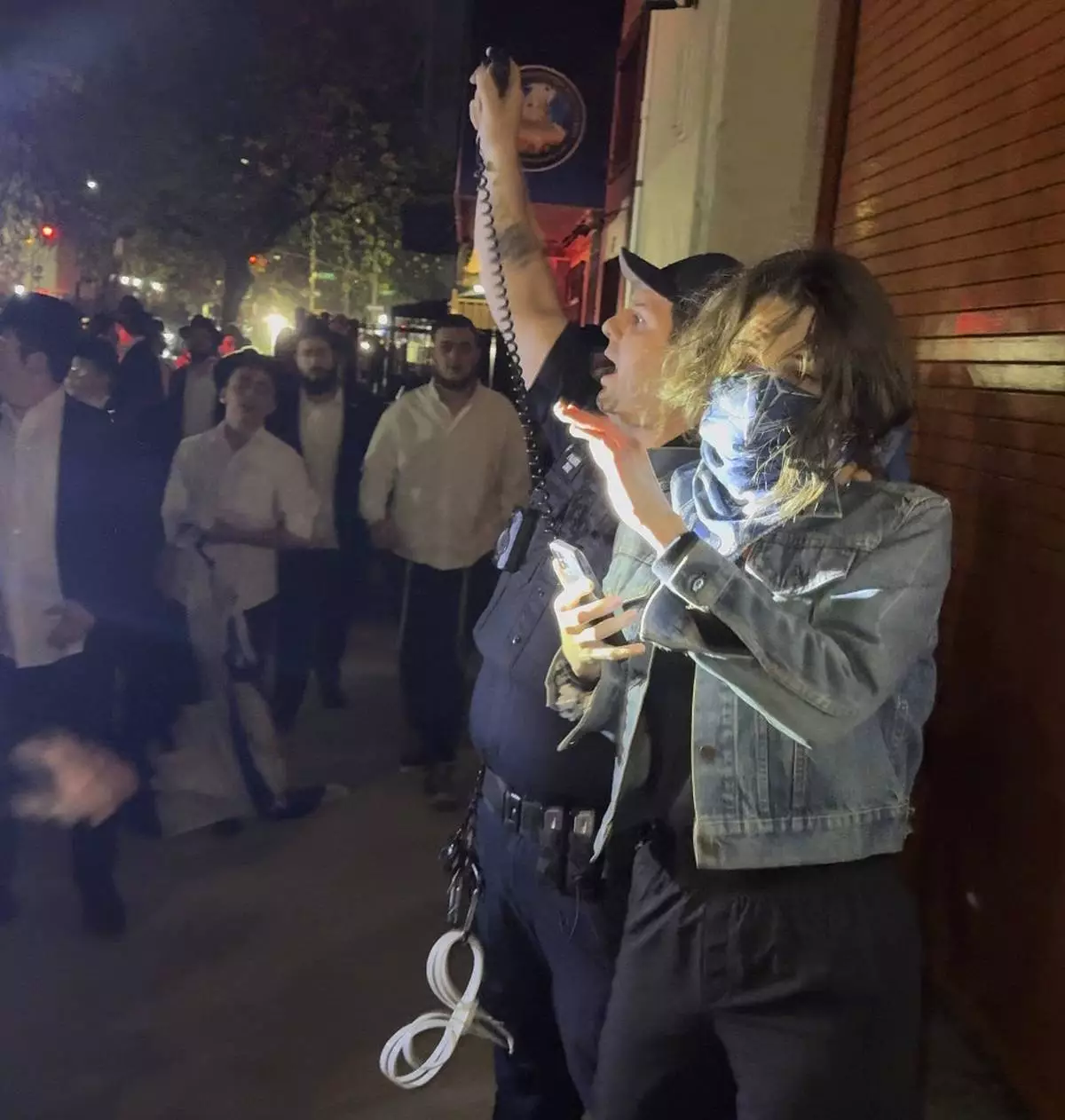
This image taken from video shows a woman and a police officer as they are pursued by a crowd of men in the Crown Heights section of Brooklyn, N.Y., on Thursday, April 24, 2025. (AP Photo)
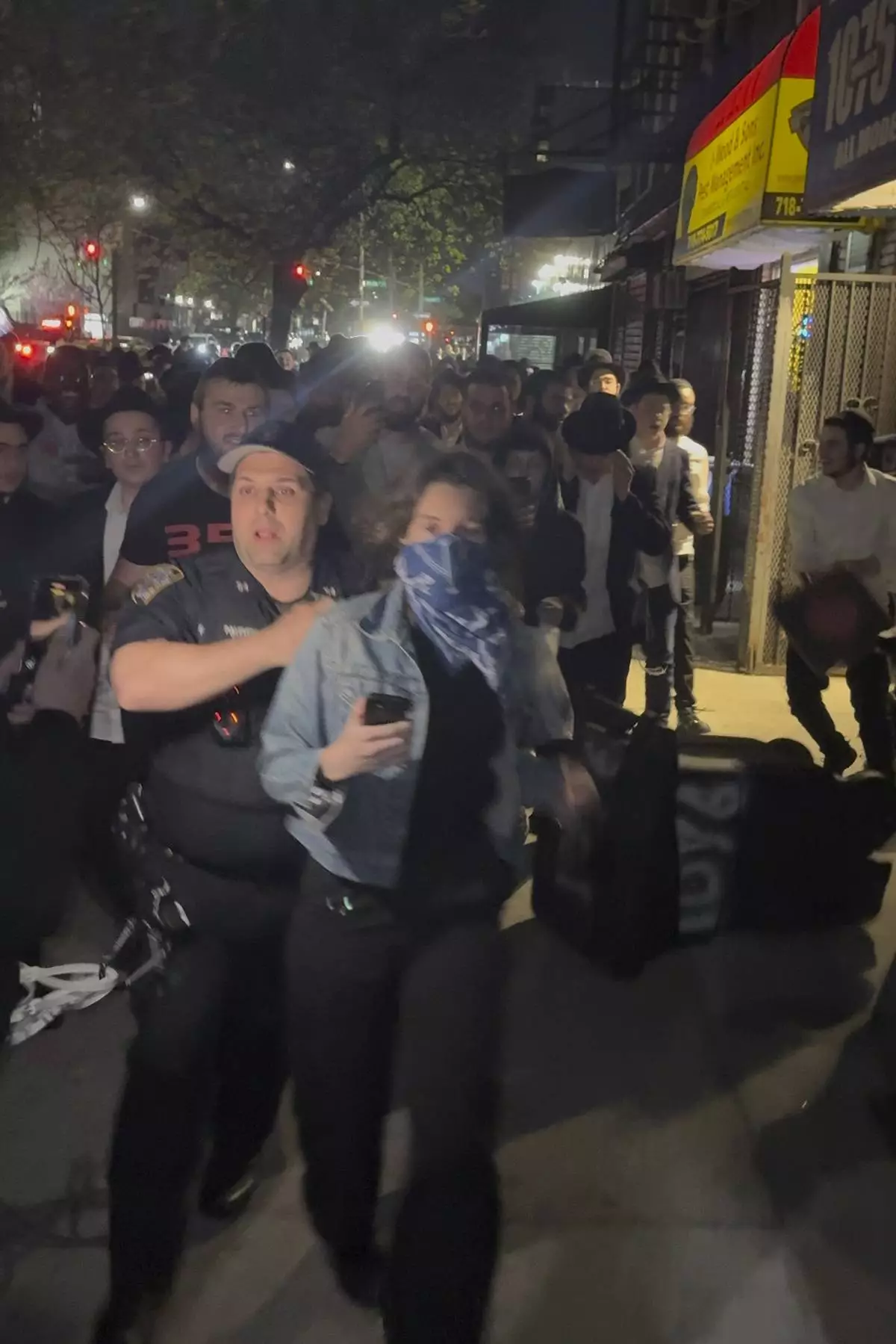
This image taken from video shows a woman and a police officer as they are pursued by a crowd of men in the Crown Heights section of Brooklyn, N.Y., on Thursday, April 24, 2025. (AP Photo)
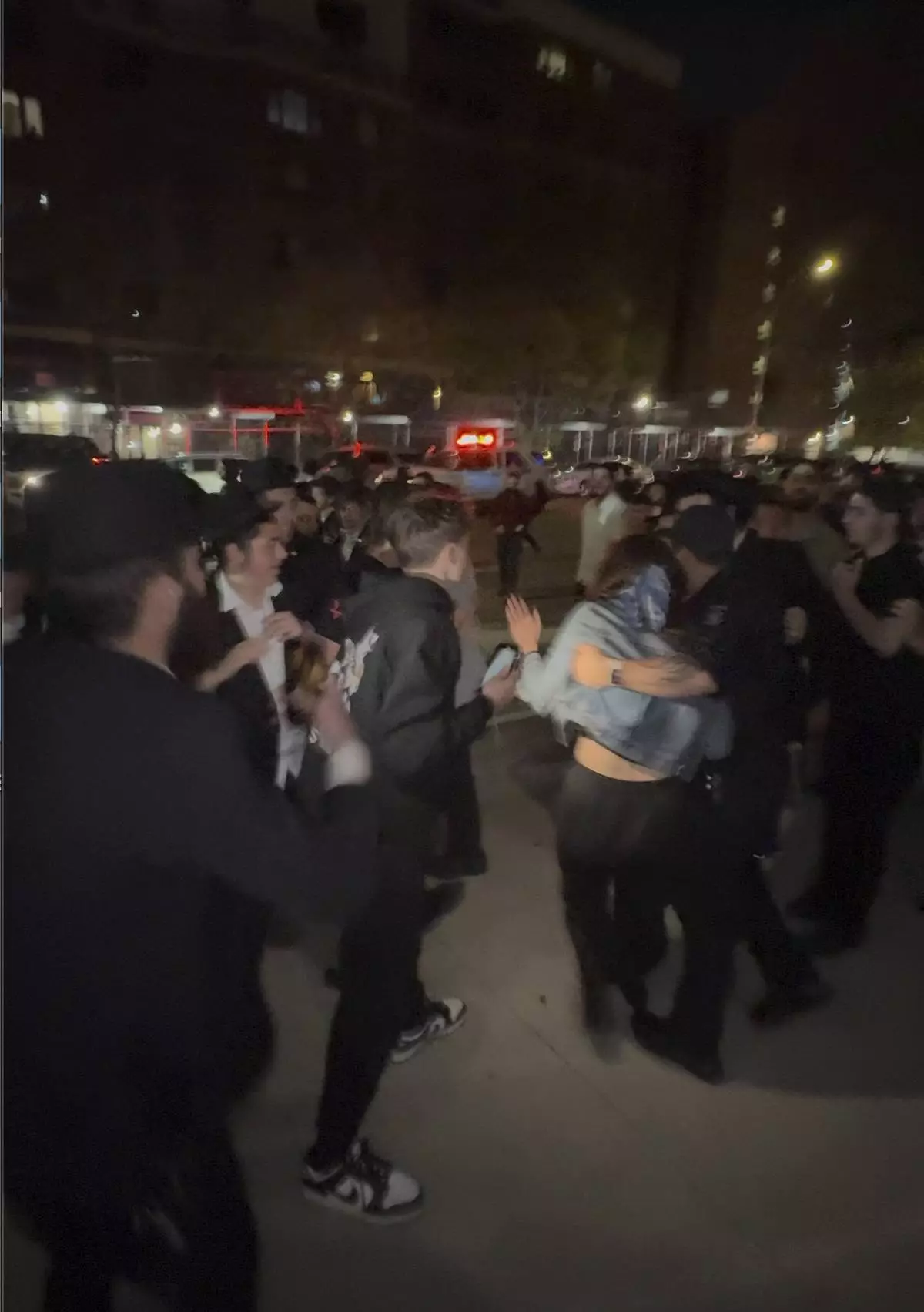
This image taken from video shows a woman and a police officer as they are pursued by a crowd of men in the Crown Heights section of Brooklyn, N.Y., on Thursday, April 24, 2025. (AP Photo)
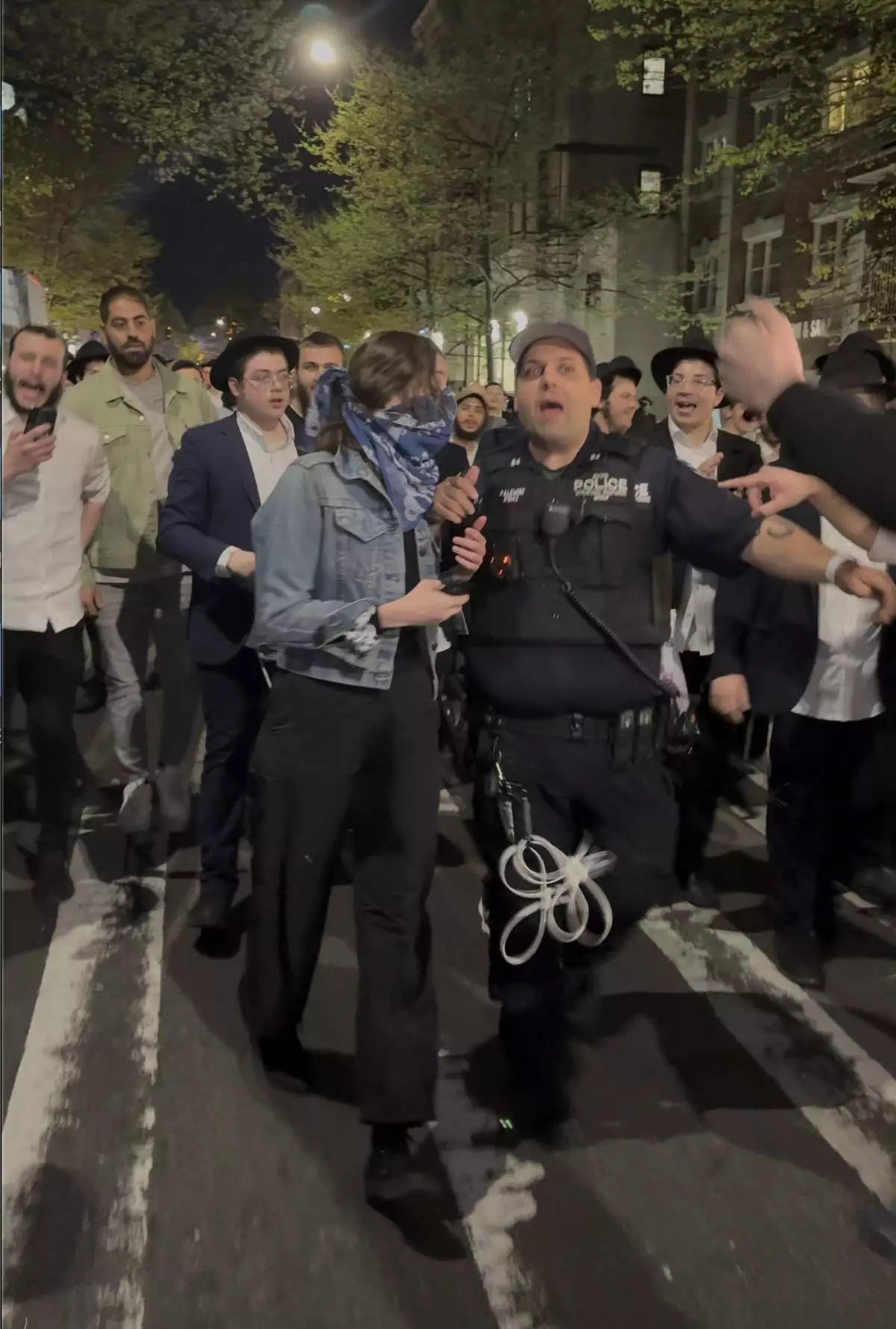
This image taken from video shows a woman and a police officer as they are pursued by a crowd of men in the Crown Heights section of Brooklyn, N.Y., on Thursday, April 24, 2025. (AP Photo)



















